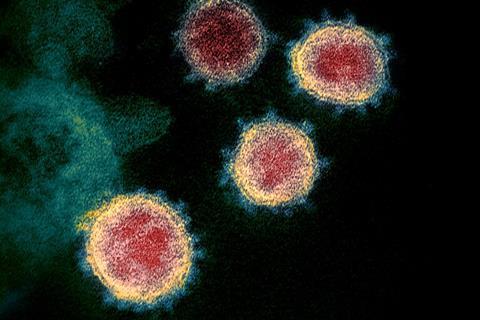Individuals with compromised immunity and persistent COVID-19 infections can harbor drug-resistant variants of the SARS-CoV-2 virus, which have the potential to spread to the general population, found researchers at Weill Cornell Medicine, the College of Veterinary Medicine at Cornell University and the National Institutes of Health’s (NIH) National Institute of Allergy and Infectious Diseases (NIAID).

In the study, published Sept. 18 in Nature Communications, researchers isolated drug-resistant strains of SARS-CoV-2 from people who had not cleared the virus after two to three months of infection and treatments with antiviral drugs.
READ MORE: SARS-CoV-2 BA.2.86 less resistant to vaccine, but may be a problem in the lung
READ MORE: Pirola variant of Covid rediscovers entry pathway into lung cells
One variant showed resistance to antivirals Paxlovid and remdesivir while another strain had mutations associated with a decreased sensitivity to remdesivir and a third antiviral drug, the monoclonal antibody sotrovimab.
Emerging mutations
“The risk in emerging mutations is the possibility of transmitting these new resistant variants to the general population with fewer viable treatment options available,” said the study’s co-senior author, Dr. Mirella Salvatore, associate professor of medicine at Weill Cornell Medicine and infectious disease physician at NewYork-Presbyterian/Weill Cornell Medical Center. “We have to come up with better treatments for immunocompromised patients and consider investigating combinations of therapies.”
Dr. Elodie Ghedin, senior investigator and chief of the Systems Genomics Section in NIAID, is co-senior author. Dr. Mohammed Nooruzzaman, research associate in the Diel Lab at the College of Veterinary Medicine at Cornell University, and Katherine Johnson, senior bioanalyst contractor in NIAID, are co-first authors.
Persistent COVID infections
While people with working immune systems can typically clear SARS-CoV-2 within days, those who are immunocompromised may continue to harbor and shed the virus for longer, even without symptoms. They also often receive multiple antiviral treatments over time, which may lead to the emergence of drug-resistant variants.
To understand the rise of antiviral drug resistance, the researchers focused on 15 individuals with compromised immune systems who received remdesivir, and in some cases, nirmatrelvir-ritonavir (Paxlovid). They found nine patients had developed virus variants with mutations to the nsp12 protein that is the target of remdesivir and four had viruses with mutations to the nsp5 protein, the target of Paxlovid. These mutations helped the virus persist despite common antiviral treatments.
One person had a virus resistant to both drugs. “For the first time, we isolated virus from a patient’s nose 77 days after disease onset that was resistant to Paxlovid and also to remdesivir,” Dr. Salvatore said. “It is concerning that some of these patients may have viable virus in their nasal secretions so far into the disease.”
Combination therapies
The researchers found that when they grew the isolated virus in lab cell cultures, two drugs simultaneously were effective in clearing the drug-resistant strain. “These findings indicate that combination therapy may be a better option to treat COVID-19 in highly vulnerable immunocompromised patients,” said co-senior author Dr. Diego Diel, associate professor of population medicine and diagnostic sciences with the College of Veterinary Medicine at Cornell University.
The researchers also found that the resistant strain replicated as well as the original SARS-CoV-2 virus in cell culture. Next, using a preclinical model, they tested whether the virus could spread through contact. They discovered this variant was as transmissible as the wildtype virus without the mutations.
It is generally assumed that when a virus acquires drug-resistance mutations, it loses some of its fitness, meaning it may not replicate or transmit from person to person as well—this study shows that isn’t the case. The authors will further investigate how mutations associated with therapeutics impact the virus’s ability to thrive and spread.
This research highlights the importance of including cohorts of immunocompromised COVID-19 patients when evaluating the efficacy of antivirals. “When the virus has more time to evolve in a host who does not clear the infection early, therapeutic strategies will need to be reassessed,” said the authors.







No comments yet